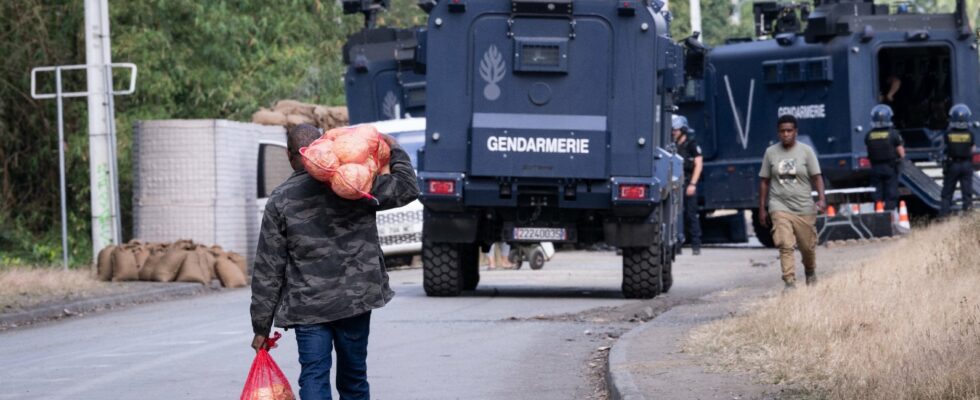Amidst our very real political and financial difficulties, we forget that a French territory already fell four months ago into endemic violence which prevents the lifting of a curfew. New Caledonia is plagued by shortages of medicine, food and fuel. The presidential visit at the start of the May riots changed absolutely nothing in the situation. The equivalent of 15% of New Caledonian GDP was destroyed by the violence. Concretely, a large number of offices, factories and businesses were burned, and not only in Nouméa.
As during Covid, to avoid general economic bankruptcy, the State distributes aid and finances partial unemployment. We are already at 400 million euros. But there is a difference between the “whatever it takes” of 2020 and the New Caledonian “whatever it takes”. The first was an expensive but rational response to the spread of a virus from China. The second is the consequence of the incapacity of the State to establish order in one of its territories. This time, France is responsible for what is happening. Even as we seek to make savings at all levels, the State distributes hundreds of millions of euros because it fails to ensure its basic sovereign functions. Ubuesque and heartbreaking.
An ecological and geopolitical potential
Should we draw general lessons from the Caledonian drama on the situation in our overseas territories? No doubt, but understanding that the latter could constitute, for our country, magnificent economic, ecological and geopolitical assets if we treated their inhabitants as adults and not as welfare recipients. Thanks to these parts of France, we are present in North America, the Caribbean and the Atlantic, Pacific and Indian Oceans.
I am writing these lines from Guadeloupe, where I came to give conferences and meet businesses. The local economy is a Janus. On the one hand, the island is experiencing a degraded social situation, particularly visible in the streets of Pointe-à-Pitre. More than a third of the population lives below the poverty line. Nearly a quarter of young people are neither in employment, education nor training. “Neets” according to the Anglo-Saxon acronym – not in Education, Employment or Training. Water cuts are legion because the network is poorly maintained. Food prices are 50% higher than in mainland France due to the lack of competition in distribution and the absurd tax on dock dues which hits imports to finance local authorities. As for politicians, they seem to have little passion for economic development.
But Guadeloupe is also an astonishing start-up ecosystem. I met these young people who brave bureaucracy and insularity to undertake, in renewable energies, the circular economy, carpooling, the delivery of health products or the recycling of sargassum, these brown algae from Brazil which proliferate due to climate change and wash up on Caribbean beaches, generating nauseating hydrogen sulphide and even dangerous to health.
Entrepreneurship, a lifeline
These enterprising young people, supported by the banks, are not those who stone the police or set up roadblocks under the pretext of the high cost of living. She does not expect the metropolis to pity her, nor even to shower her with public money. On the other hand, for the proper functioning of these emerging businesses, she would like public services to function and young people to be trained. Ideally, it would be good for our diplomacy to also work to increase economic cooperation agreements, not with countries located thousands of kilometers away, but with those in South America and the Caribbean.
We always come back to the same point. Overseas as in mainland France, it is entrepreneurship that creates growth, and growth that enables solidarity. The role of the State is to ensure security. The rest is optional. Here are some simple ideas but which should guide the restoration of order in our public sphere. Otherwise, a West Indian business manager pointed out to me, the worst will happen: the New Caledonian scenario.
.
